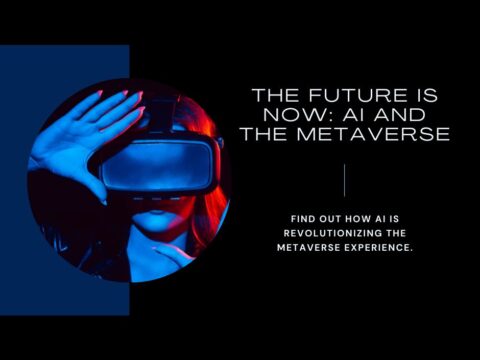The intersection of the metaverse and the music industry is ushering in a new era of immersive and boundary-defying musical experiences. As virtual environments evolve, artists and audiences alike are embracing innovative technologies to redefine how music is created, performed, and enjoyed. In this exploration, we delve into the transformative innovations that the metaverse is bringing to the realm of music.
Virtual Concerts and Global Accessibility:
Metaverse platforms enable artists to host virtual concerts that transcend geographical limitations. Fans from around the world can participate in live performances without the need to be physically present. This global accessibility not only expands artists’ reach but also creates a more inclusive and diverse audience.
Immersive Audiovisual Experiences:
The metaverse offers a canvas for immersive audiovisual experiences that go beyond the capabilities of traditional concert venues. Virtual environments can be crafted to enhance the visual and auditory aspects of a performance, creating a multisensory experience for the audience. Virtual reality (VR) and augmented reality (AR) technologies further elevate the immersion, allowing users to feel like they are part of the musical landscape.
Blockchain and NFT Integration in Music:
Blockchain technology and non-fungible tokens (NFTs) are revolutionizing how musicians monetize their work and engage with fans. Artists can tokenize their music or exclusive experiences, offering fans a unique and verifiable digital asset. This not only provides new revenue streams but also strengthens the connection between artists and their audience through ownership of rare and valuable digital collectibles.
Collaborative Music Creation in Virtual Spaces:
The metaverse facilitates collaborative music creation by bringing artists together in virtual spaces. Musicians from different parts of the world can collaborate on projects, leveraging the connectivity of the metaverse to bridge physical distances. This collaborative aspect opens up new possibilities for genre-blending and the creation of diverse musical expressions.
Digital Avatars and Virtual Performances:
Digital avatars are becoming an integral part of virtual music experiences. Artists can create virtual versions of themselves to perform in the metaverse, offering a visually stunning and customizable representation. This not only adds a layer of creativity to performances but also allows artists to experiment with unique personas and visual storytelling.
Fan Engagement and Interactivity:
The metaverse enables unprecedented fan engagement and interactivity during virtual concerts. Fans can use avatars to express themselves, interact with other attendees, and even influence the performance in real-time. This level of interactivity transforms passive viewers into active participants, fostering a sense of community and shared experience.
Monetization and New Revenue Streams:
The integration of blockchain and NFTs introduces novel monetization opportunities for musicians. Beyond traditional revenue streams, artists can explore tokenizing exclusive content, limited edition releases, or access to special virtual experiences. This shift towards decentralized and blockchain-driven models empowers artists to have more control over their intellectual property and financial transactions.
Interactive Music Education and Workshops:
The metaverse serves as an educational platform, offering opportunities for interactive music workshops and lessons. Musicians can connect with students globally, providing insights into their craft, sharing techniques, and even conducting virtual masterclasses. This democratization of music education contributes to a more accessible and diverse learning environment.
Live Collaborative Jam Sessions:
Virtual spaces within the metaverse enable musicians to host live collaborative jam sessions. Artists can spontaneously join each other on virtual stages, experimenting with new sounds and styles in real-time. This fluid and dynamic approach to collaboration reflects the essence of the metaverse, where creativity knows no boundaries.
Emergence of Metaverse Music Labels:
The metaverse is witnessing the rise of virtual music labels dedicated to supporting and promoting metaverse-native artists. These labels operate in digital spaces, leveraging blockchain technology for transparent royalty distribution and providing a platform for artists to showcase their work to a global audience.
Augmented Reality (AR) Enhancements:
As technology advances, augmented reality (AR) enhancements are becoming integral to the metaverse music experience. AR features can overlay digital elements onto the physical world during virtual concerts, creating a seamless blend of the virtual and real. This immersive layer adds a new dimension to live performances, captivating audiences with visually stunning effects.
Evolution of Metaverse Concert Venues:
Metaverse concert venues are evolving to offer unique and futuristic environments. From virtual replicas of iconic real-world venues to entirely fantastical landscapes, these spaces contribute to the overall immersive experience. Attendees can explore these virtual realms, making the concert experience not just about the music but also about the visual spectacle.
The Rise of AI-Generated Music:
Artificial intelligence (AI) is playing a role in the creation of music within the metaverse. AI-generated compositions, often in collaboration with human artists, bring a new level of experimentation and innovation to musical expression. This fusion of human creativity and machine intelligence leads to groundbreaking sonic landscapes and genre-defying compositions.
Metaverse Music Awards and Recognitions:
With the growing significance of metaverse music, the industry may see the emergence of dedicated awards and recognitions for achievements within virtual spaces. This further legitimizes the impact of metaverse-native artists and their contributions to the broader music landscape.
In conclusion, the metaverse is not just a digital extension of the music industry but a transformative force shaping its future. The ongoing innovations, from blockchain integration to immersive experiences, position the metaverse as a revolutionary space where music can be experienced, created, and celebrated in ways previously unimaginable. As we navigate this uncharted territory, the metaverse holds the promise of an inclusive, dynamic, and endlessly creative future for the world of music.




